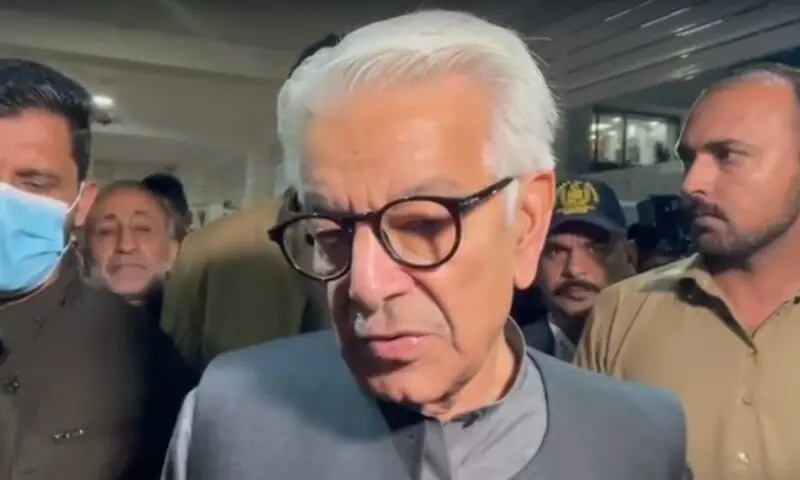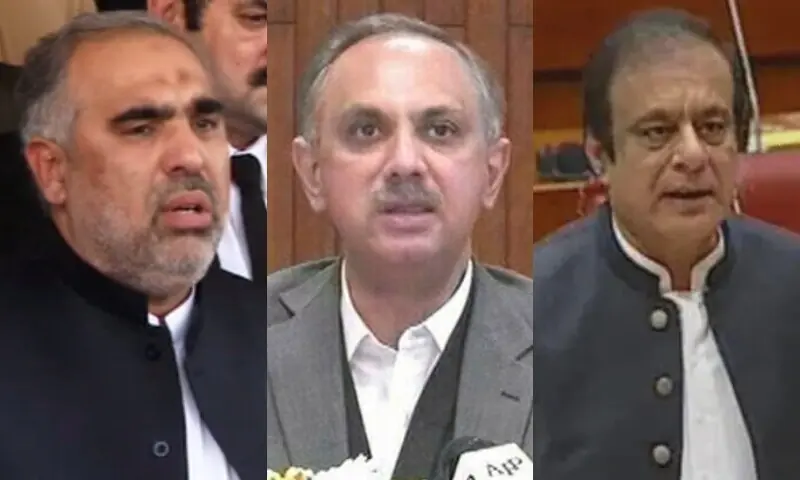Defense Minister Khawaja Asif confirmed on Wednesday that the Pakistani delegation had left for tomorrow’s talks with the Afghan Taliban in Istanbul to find a solution to current tensions between the two neighbors.
A second round of talks between Pakistani and Afghan Taliban delegations had begun in Istanbul on October 25, after days of border hostilities, but Islamabad’s long-standing concern over terror attacks emanating from Kabul remained a major point of contention, resulting in a stalemate. A breakthrough came after Turkiye and Qatar saved the dialogue process for the second time in less than a week, following Pakistan’s announcement on October 29 that talks had “failed” and that its negotiators were preparing to return home.
The talks produced a three-point understanding: the continuation of the ceasefire, the establishment of a monitoring and verification mechanism to ensure peace, and sanctions for violations. The operational details of that mechanism are expected to be finalized when the “principals,” senior representatives of both sides, meet again in Istanbul on November 6.
Speaking to the media outside Parliament today, Asif said: “The delegation has left today and negotiations will begin tomorrow morning. Let us hope that Afghanistan uses wisdom and peace is restored in the region.”
He said Pakistan had a single-point agenda: Afghanistan clamp down on attacks on the former from the soil of the latter.
Asked if there was hope for positive development, Asif said talks were only held if there was a chance for progress; otherwise it was a waste of time.
27th Constitutional Amendment
Separately, the Defense Minister said he could not share details about the reservations or discussions taking place over the proposed 27th Constitutional Amendment, adding that the draft would take its “final form” next week before being presented to Parliament.
Asif said PPP president Bilawal Bhutto-Zardari had full right to express his opinion on the amendment and the government was engaging with other political parties in the same spirit to get their opinion and inputs.
The Defense Minister, however, refused to comment on the rumored changes proposed in the upcoming constitutional amendment.
Border skirmishes and talks
Pakistan and Afghanistan have seen worsening ties in recent weeks, including border skirmishes, counter-statements and accusations.
Hostilities began last month when an attack was launched against Pakistan from Afghanistan on the night of October 11. The attack followed an allegation by the Afghan Taliban of Pakistani airstrikes against Afghanistan, an allegation that Islamabad has neither confirmed nor denied.
For its part, Islamabad has long demanded that the Taliban prevent terrorist groups from using its soil against Pakistan. The Taliban, however, deny the accusation of allowing terrorists to operate from Afghan soil.
Meanwhile, Pakistan continues to grapple with the issue of terrorism and has suffered multiple casualties among security forces in intelligence-based operations.
After the initial skirmish on October 11, many others occurred along the Pakistan-Afghanistan border. Meanwhile, the Islamabad attacks also targeted the camps of the Gul Bahadur group in Afghanistan.
Ultimately, the two sides met for talks in Doha, resulting in a temporary ceasefire, as well as a commitment to meet again in Istanbul to work on mechanisms for lasting peace and stability between the two countries.
Türkiye and Qatar have deep ties with Pakistan, while Qatar also played an important role in negotiations between the Afghan Taliban and NATO forces.









